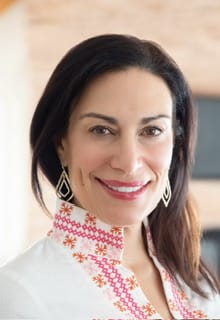Roland Garros was born in 1888 in the town of Saint-Denis, Reunion, France. when he was twelve he became very ill with pneumonia and his family sent him to the town of Cannes in the south of France to recover. The warm Mediterranean weather was good for his recovery and as he got better, he became interested in rugby, soccer and tennis. He became very competitive as a teenager and at the age of twenty-one he went on to ownhis own car dealership in Paris. His good friend was Ettore Bugatti, and soon he became the first owner of the Garros Bugatti Type 18 which now sits in the Louwman Museum in the Netherlands. From sports cars, his interests went to aviation, becoming a pilot in 1909. Eventually, he made the first solo flight across the Mediterranean Sea from Saint Raphael in the south of France to Bizerte in Tunisia. Even with two engine failures, Garros made the flight in about eight hours. When the First World War broke out, he joined the French army, becoming one of the first fighter pilots. He flew many successful missions during the war, however, he was shot down at one point, captured by Germans, held for almost three years and then escaped with a fellow prisoner of war to Selke Marchal. Eventually, they made it to London, then returned to France, where they rejoined the French army. Garros continued to fly mission but was killed in action less than a month before the ending of the war and the day before his thirtieth birthday. He died a hero in France. When a classmate of his, Emile Lesueur, was president of the Stade Francais upon the building and completion of the stadium where the French Open would be played and other notable tournaments, he suggested naming the stadium after Garros, whose famous quote, “Victory belongs to the most tenacious,” a quote he had spoken to describe what it took to fly dangerous missions, is displayed on the main court.
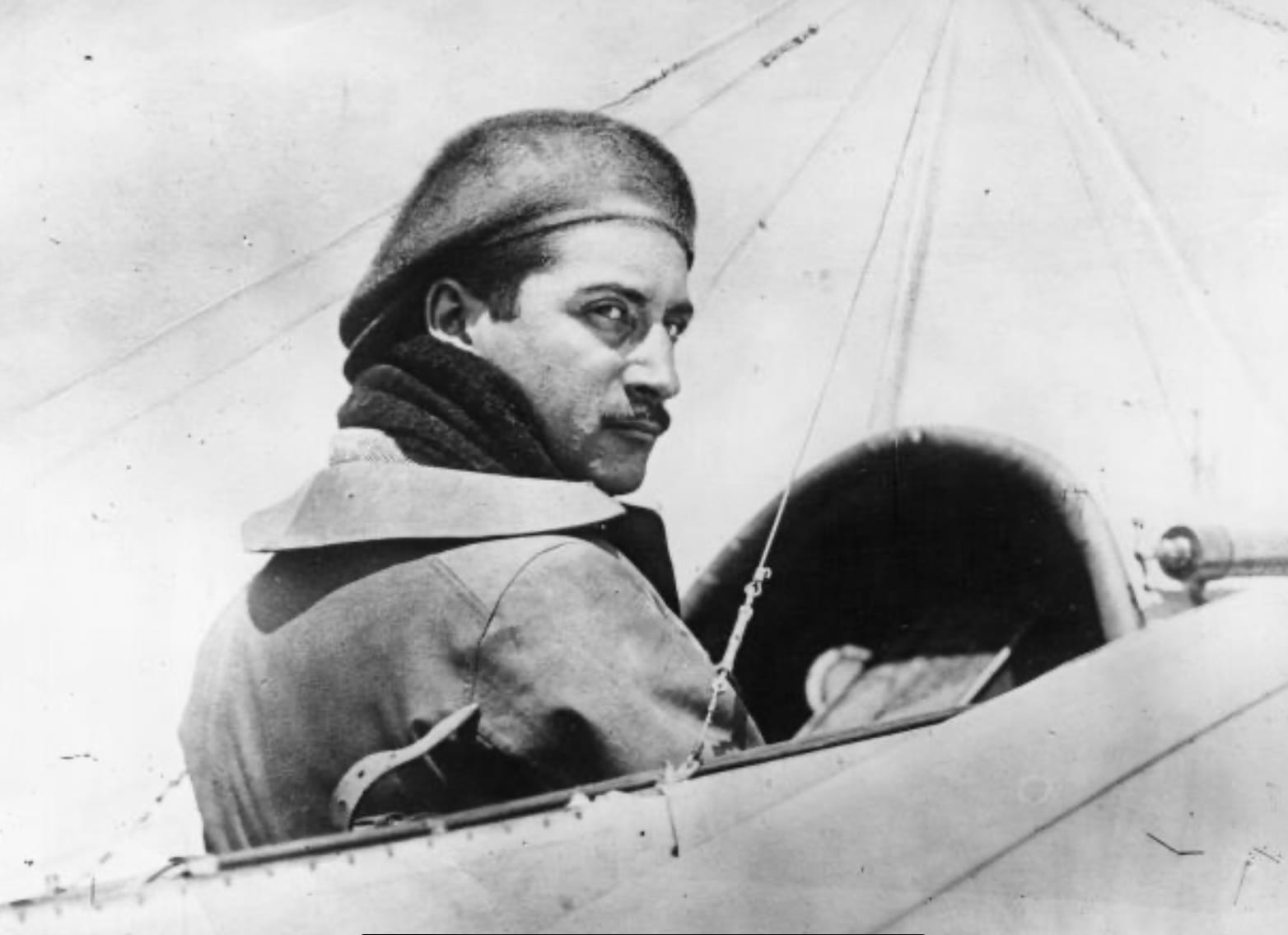


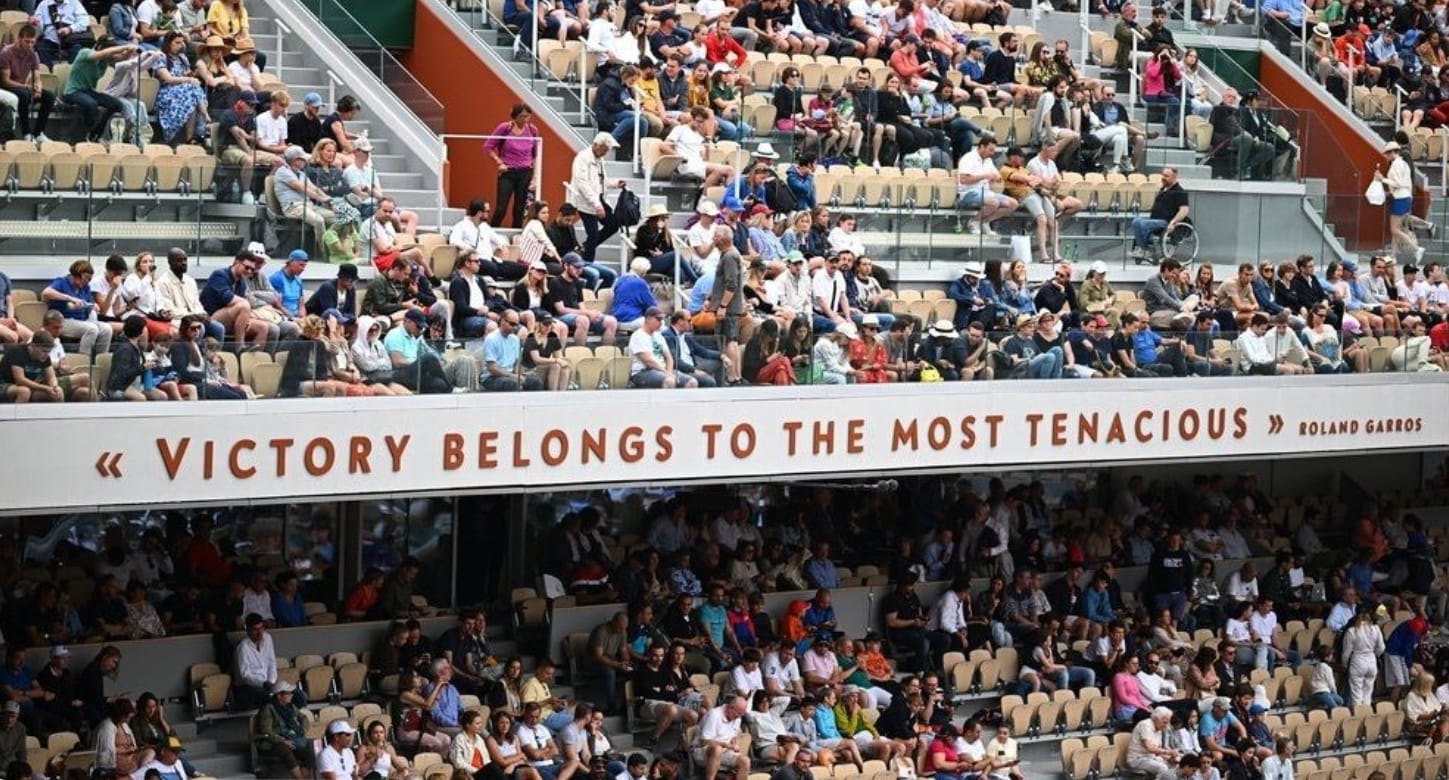
Roland Garros the aviator, fighter pilot & victor, his mapped out flight across the Mediterranean, the stadium that bears his name and famous quote.
The French Open is one of the four Grand Slams, tennis’s Super Bowls of tournaments. The others, are The Australian, Wimbledon, played in England and The US OPEN played in New Your City borough of Queens. Each tournament has it’s own uniqueness the Australian and US are played on hard court, Wimbledon played on grass and the French is played on red clay, characteristic of the land around the Mediterranean where there are numerous courts and stadiums made from the red clay. Play is slower on clay, participants have to be patient. They slide and it’s a mess to clean out of clothes. Shoes are stained and filled with sweat from playing in the hot sun. They say the French is the hardest of the Slams, because of those conditions. You win the French and you are tough. That’s why they refer to Spaniard, Rafa Nadal, who has won the French Open 14 times, ”The King of the French.“ He can slide stretch and hit hard and tough. He won his first French Open at the age of nineteen. Having grown up on the red clay on the island of Majorca, it is so familiar to him. Coached first by his Uncle Toni, a celebrated soccer player, Uncle Toni was tough on him and knew what Nadal would need to make it as a pro. Uncle Toni taught Rafa to be humble and to not criticize his opponent, even if he lost.
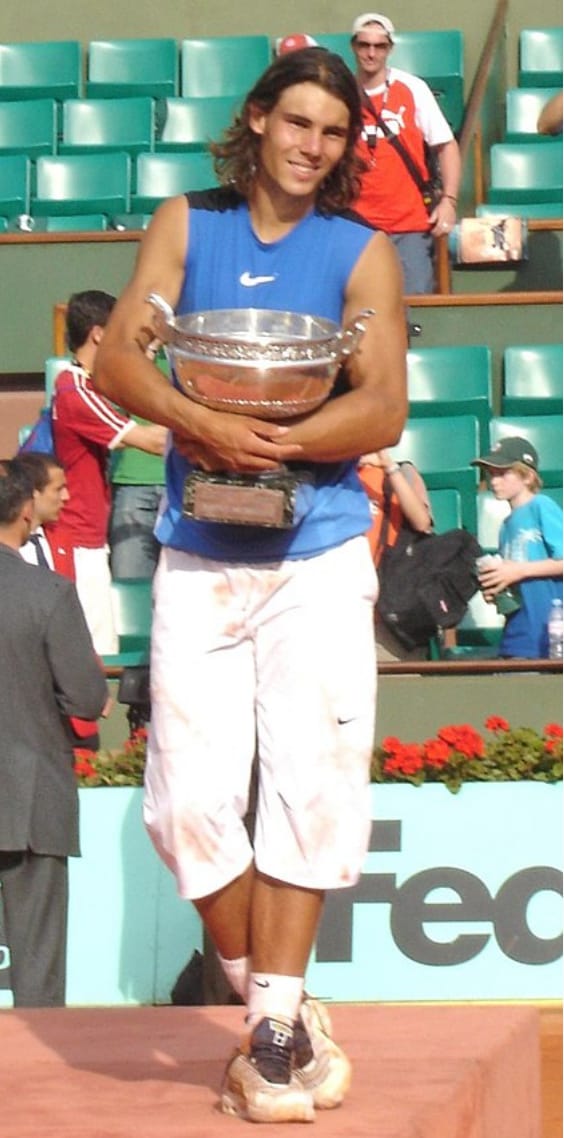
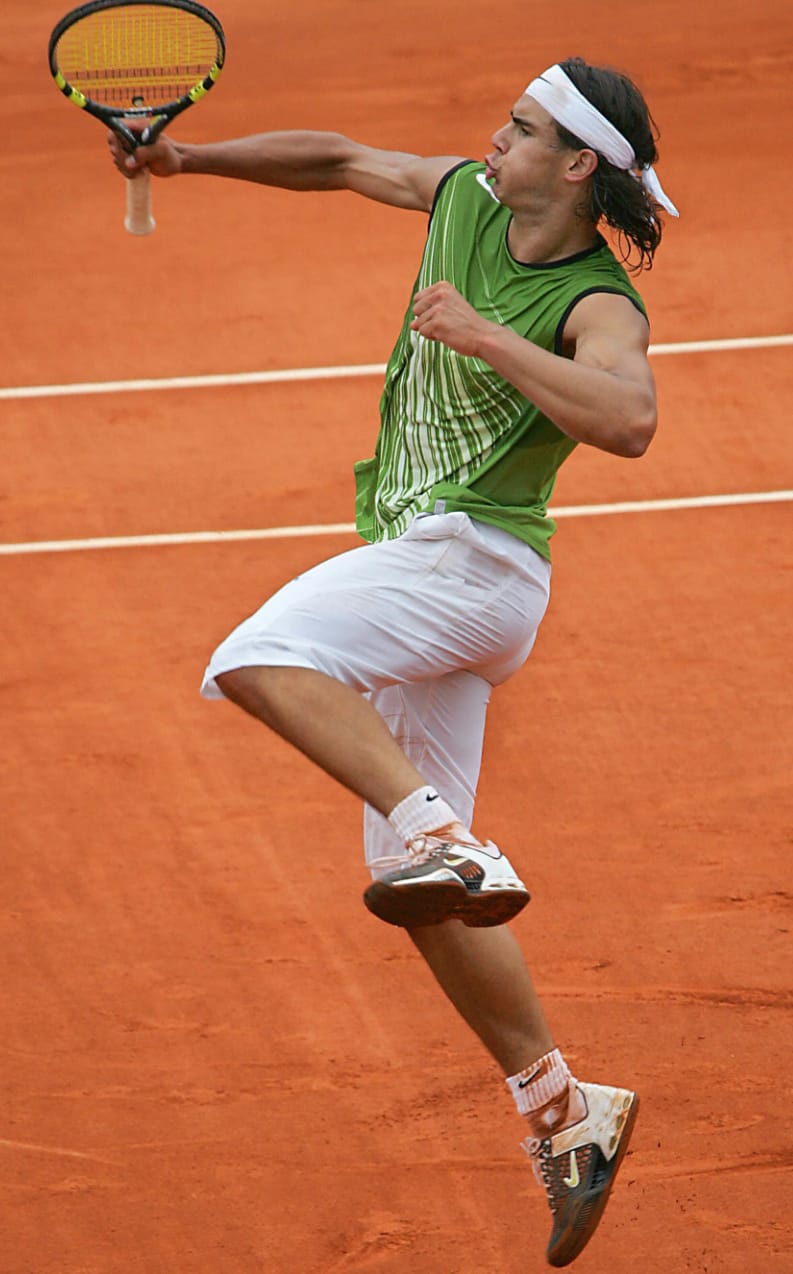
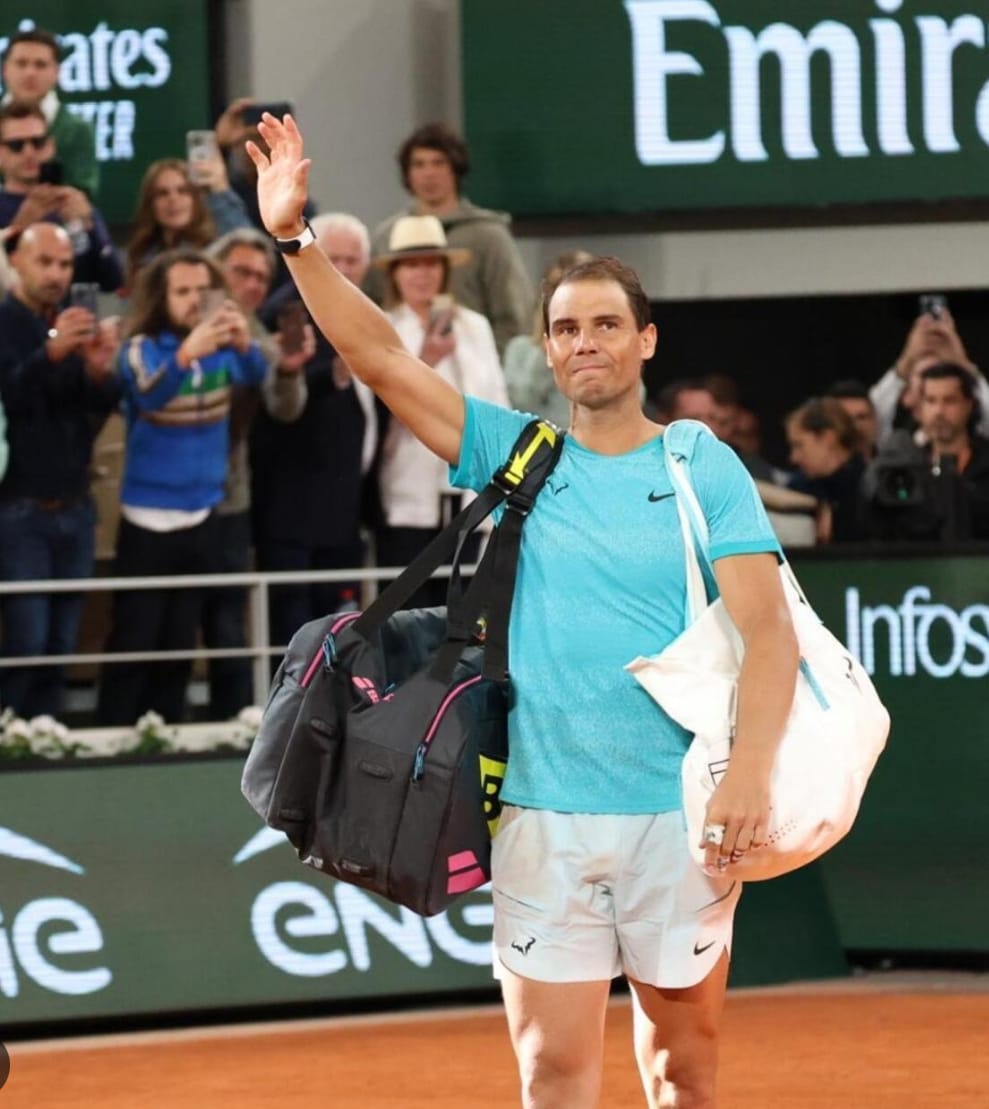
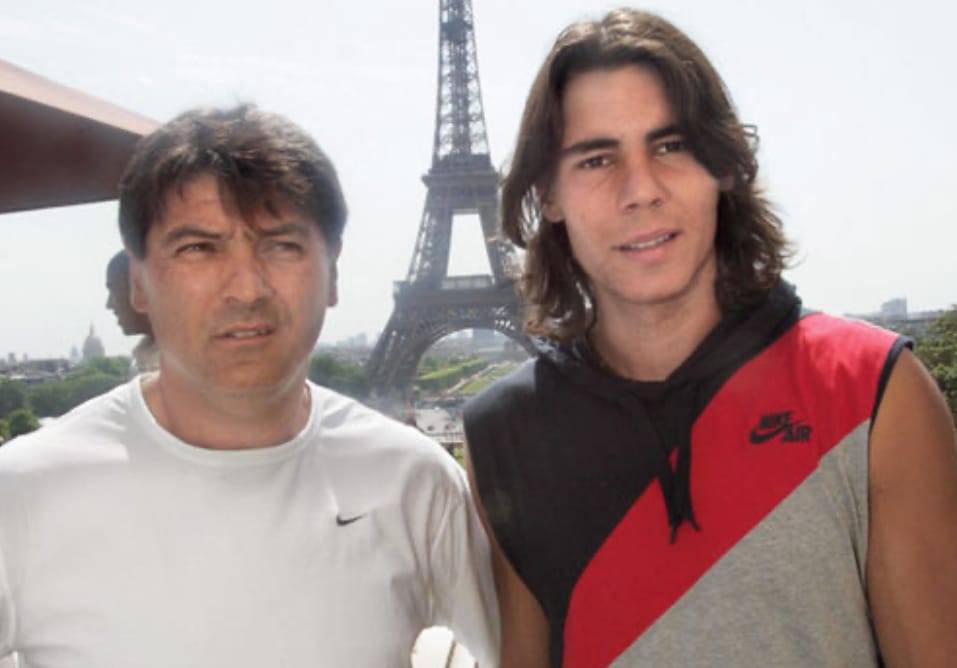
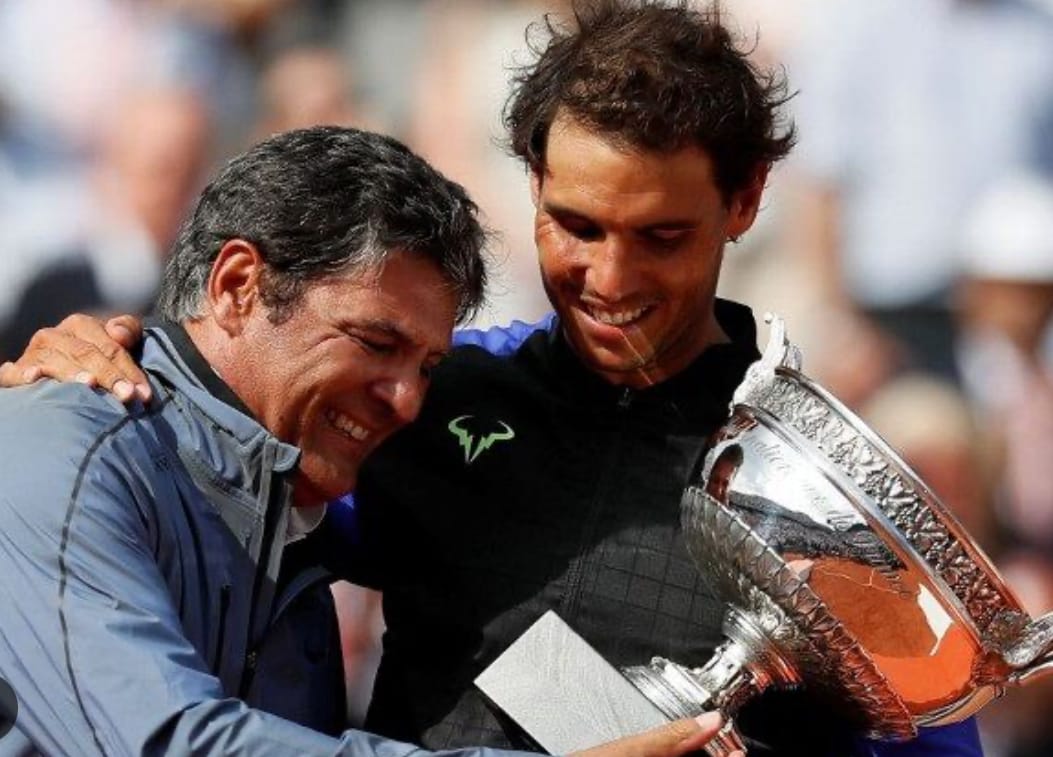
Rafa’s first French Open victory at age 19, his most recent performance as he left the court, top right, losing in the first round to Alexander Zeverev and with Uncle Toni at the beginning of his career and later on enjoying a victory.
Watching Rafa play on Monday, at age 37, most likely nearing the end of his career, you could see his tenacity. He ended up loosing his first round match against Alexander Zverev, having lost points in his ranking due to limited play last season due to injuries. Placement in a tournament is all based on rankings/ATP points and players ecru points based on wins in tournaments. Nadal’s fans have seen him limp off the court and truly give the sport his all. He has taken time off for injuries, surgeries and family matters and family MATTERS to him. When the camera pans to his box, it’s his very team of family, trusted doctor, trainer and longtime friends. He has been coached to not be a princess, but he does have the qualities of a meticulous details person with the same routine before a serve he is known for, the three balls, throwing one to the side, wiping stray hair from his forehead into his headband, arranging his clothing and then he serves. His look has transformed from the pirate look of a teenager to the polished world class athlete. Over a career, Nadal has been the tenacious victor.
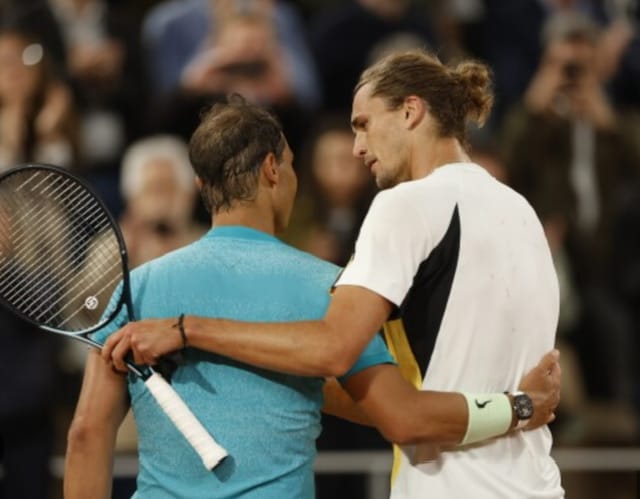
When you think about the victors in our history and society, those who have experienced successes is their field, who comes to mind for you? It could be an athlete, coach, an entrepreneur, someone from the military, a statesman/stateswoman, a business person who leads a company, a leader in any field, who is respected, maybe liked or not, but respected yes. A victory has to make on the spot decisions in heated moments that can mean the difference between winning and loosing, success or failure or even life and death. Some decisions made, may not be popular but they are the decisions that need to be made sometimes and they are willing to accept the consequences of their decisions and changing course when necessary to achieve the desired result. A victor is willing to speak their mind and stand up to an opponent but they don’t need to to prove their point. Their performance alone can speak for themself. “The proof is in the pudding” of a victory, their performance and body of work speaks for itself, they do not have to toot their own horn. They have confidence and not arrogance. They have to have a strong sense of confidence to be victorious. A victor does not rub in to their opponent a loss, belittle them or when beat themself, they accept the loss not as “having a bad day themself,“ but that they got beat by someone who played and won a hard fought battle. In terms of tennis, I remember a Wimbledon loss Serena Williams experienced and when asked to speak after the match to the crowd, with her opponent right next to her, the first thing she said was that they reason her opponent won was because she, Serena, had had a bad day, sort of taking away the victory from her opponent. I couldn’t even tell you her opponent’s name, the win was overshadowed by Serena’s poor attitude. Serena didn’t need to say that. She is Serena Williams, one of the strongest women to ever play the game. Her words tainted her opponent’s win and effort to get there. Poor behavior on Serena’s part. Another great player of tennis who had an attitude that shadowed his performance was John McEnroe. Know in the press during the late-seventies and early eighties, as “The Brat,” because of his antics of arguing with his opponent and chair umpires. When John won Wimbledon in 1984, against Jimmy Connors, the headline in one of the London tabloids was “The Brat is Back.” Still to this day, McEnroe in his sixties, still in great shape, an excellent commentator of tennis, he has made commercials mocking his former attitude. Although he had a long successful career playing tennis and as a very polished commentator, I don’t know if he would be considered Roland Garros victor.
Those who are considered victors, or those who experience victory, are role models and examples for the rest of us of “how it’s done.” They are fun to watch. I know when I watch or observe a true victor, it stirs me. Michael Jordan comes to mind. He made basketball fun to watch. Everyone knew he was a star, but he played on a team realizing he was part of the winning team. I think of Tom Brady, celebrated quarterback, but making sure that his team was rewarded monetarily as well as he realized that his success as a quarterback had a lot to due with they guys protecting him and running the plays. Another person who comes to mind is BIlly Graham, a gifted speaker and evangelist who gave all of his glory to God. His organization set up Samaritan’s Purse, a humanitarian effort, organizing medical personnel, builders, contractors, workers, and laypeople who come in to disaster areas after storms, tornados and hurricanes to help communities rebuild. Every winner is NOT a victor. The winners who use their talents, positions and skills to take advantage of others or take advantage of their place are most certainly NOT winners.
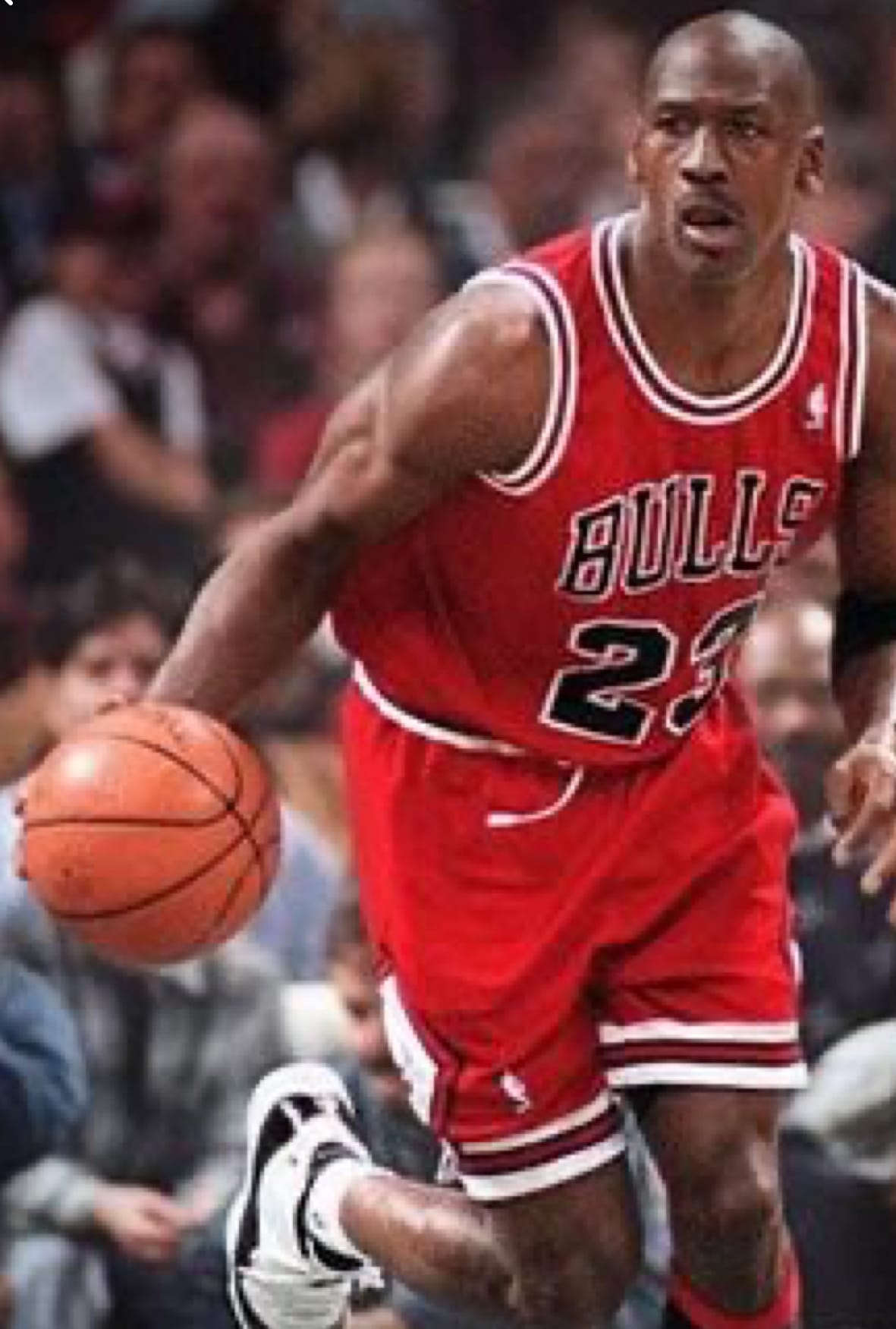
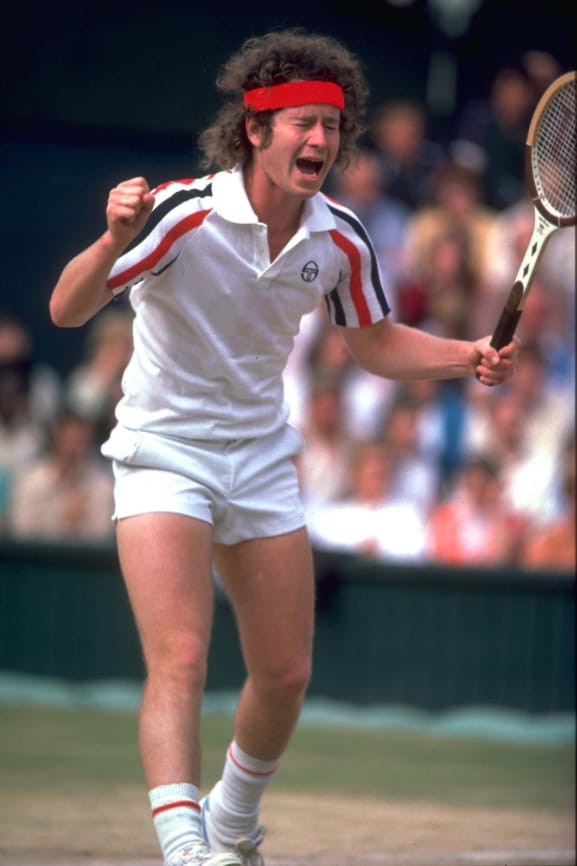
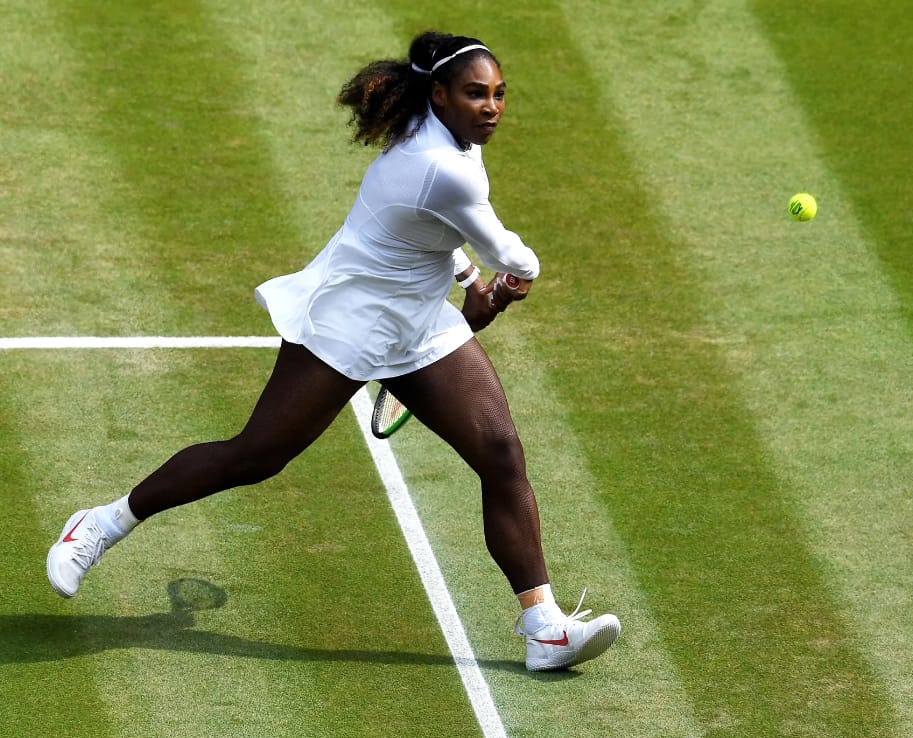
Michael Jordan, John McEnroe and Serena Williams, all athletes and winners. Victors or winners? Who?
True victors are not seen often, but when you see them, you know it. It’s how they carry themself, how they speak and how they treat others. When ‘Victory Belong to The Most Tenacious” it feels good. We like it when the person who should win actually DOES. Whether it is the underestimated under dog who plays their best and they experience a hard fought victory, a seasoned pro who makes a sport look easy like a beautiful dance or a general, or a leader who emerges from a hard fought battle with tough decisions made, giving his soldiers all of the credit. They are not perfect, but they are respected and admired for their qualities and talent. Look around you and see who you consider a victor. They are harder to find than one might think. Only a few come along in a generation There’s your homework for the weekend…It’s a Great Day ❤️
